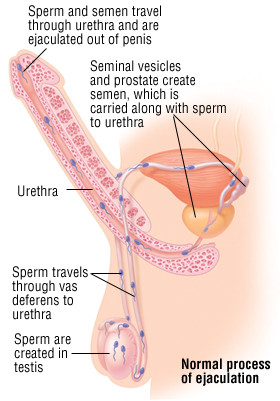Sex in the Senior Years
By Mark Stibich, PhD | Updated on August 13, 2023
Medically reviewed by Isaac O. Opole, MD, PhD
This article is a repost which originally appeared on verywell health
Edited for content. The opinions expressed in this article may not reflect the opinions of this site’s editors, staff or members.
Key takeaways:
‧ People in their 70s and 80s and beyond can continue to enjoy sex.
‧ Striving for optimal physical and mental health can allow one to continue to enjoy sex in older age.
‧ Issues you cannot resolve on your own should be brought to the attention of a qualified medical professional.
Many people in their 70s and 80s are not only sexually active, but satisfied with their senior sex lives.1 Though the frequency or ability to perform sexually may decline with age due to physiological changes, these don’t necessarily affect how a person experiences or enjoys sex.
Aging-related problems like erectile dysfunction (ED), vaginal dryness, or urinary incontinence can affect sex. But their impact can also be minimized by using medication, managing chronic conditions, seeking individual or couples counseling, and changing sexual practices.2
This article explores the sex lives of adults 65 and over and the problems that can interfere with sex as the body ages. It also discusses the various treatment options and ways to maintain—or even jumpstart—your senior sex life.
Sexual Activity in Older Adults
Studies suggest that men are almost twice as likely as women to still have sex or masturbate in their later years. A British study found close to 60% of men ages 70 to 80 and 31% of men ages 80 to 90 are still sexually active. In women, those figures drop to 34% and 14%, respectively.3
This lower rate of sexual activity in older women may be due to a lack of opportunity rather than a lack of desire. Research shows that older women are less likely to have partners (due in large part to the fact that they often outlive their partners). This is sometimes referred to as “the partner gap.”1
Sexual Health Problems in Older Men
It is common for men to experience sexual problems after age 40. Reasons include a natural decline in testosterone levels, heart disease, and prostate problems. The inability to achieve or sustain an erection or reach orgasm or ejaculation are common concerns.4
Erectile Dysfunction
Erectile dysfunction (ED), formerly known as impotence, is the inability to achieve or maintain an erection firm enough for sexual penetration and long enough to achieve orgasm.
While ED is more common in older men, aging itself does not cause the problem. ED is related to conditions, sometimes several at once, that directly or indirectly interfere with erections.
Risk factors include high blood pressure, diabetic nerve damage, smoking, obesity, Peyronie’s disease, depression, and even certain medications. An accurate diagnosis is needed to ensure the right treatment.5
ED drugs like Viagra (sildenafil), Levitra (vardenafil), and Cialis (tadalafil) are often the first-line treatments for ED. Lifestyle changes and counseling can also help. For some men, hormonal therapy, penis pumps, and penile implants may be recommended.
Is There a Female Viagra?
Benign Prostatic Hyperplasia
Benign prostatic hyperplasia (BPH) is a non-cancerous enlarged prostate and one of the most common health problems in older males.6 BPH can cause symptoms like difficulty urinating, frequent urination, or waking up in the middle of the night to urinate (nocturia).
On top of this, BPH can cause sexual problems like low libido (low sex drive) and delayed ejaculation (difficulty reaching orgasm).
Among the treatment options, testosterone therapy may help restore libido. There are also certain drugs used off-label that may help with delayed ejaculation, including cabergoline (originally marketed as Dostinex) and Wellbutrin (bupropion).7
Because some BPH medications can also cause sexual dysfunction, a change in the dose may help resolve these concerns.8
Sexual Health Problems in Older Women
More than a third of older women experience sexual problems. These are typically due to menopause, when estrogen levels steeply decline. Hormonal changes can lessen sexual desire and make it harder to become aroused.9
Sexual organs also change as a person gets older. A woman’s vagina will shorten and narrow. The vaginal walls become thinner and less flexible, tearing more easily. Vaginal lubrication decreases, making vaginal intercourse more painful.10
Hypoactive Sexual Desire Disorder
Hypoactive sexual desire disorder (HSDD) is diagnosed when an absence of sexual fantasies, thoughts, and desires causes personal distress. It is a problem that is common among many older women.
A medication known as Addyi (flibanserin) is used to treat HSDD in women. It is currently only approved for premenopausal women, but research shows that it can also improve libido in older women as well.11
Vaginal Dryness
Vaginal dryness is uncomfortable and can make sex painful. Over-the-counter (OTC) remedies that can help relieve irritation and itching from vaginal dryness include lubricants such as K-Y Jelly or vaginal suppositories like Replens.
If OTC remedies don’t help, your doctor may prescribe estrogen cream as well as estrogen-containing vaginal rings and vaginal suppositories.
There are also plant-based products, like black cohosh, that have estrogen-like effects. These should be used with caution in women who have had or are at risk of breast cancer.12
Pain With Sex
Painful intercourse is more likely in older women as vaginal tissue tends to thin and tear easily after menopause. Standard treatments for vaginal dryness can often help ease pain during sex.
If that is not effective, prescription drugs like Osphena (ospemifene) and Intrarosa (prasterone) can treat thinning vaginal tissues and help relieve moderate to severe vaginal dryness.12
Pelvic Organ Prolapse
The pelvic floor muscles and tissues hold the bladder, uterus, cervix, vagina, and rectum in place. Pelvic organ prolapse (POP) occurs when the pelvic floor weakens, causing the pelvic organs to drop and bulge (prolapse) in the vagina. This can cause pelvic pain and pressure, pain with sex, and urinary incontinence.13
POP is often treated with pelvic floor physical therapy to strengthen the supporting muscles. In some cases, surgery may be needed.14
Other Health Concerns
Chronic medical conditions become more common as a person ages. Many of these can interfere with an older person’s sex life.
Arthritis and Chronic Pain
Arthritis and other chronic pain conditions are common among older adults and can make sex very difficult. Depending on the cause, doctors may recommend physical therapy to strengthen muscles and improve flexibility.
Nonsteroidal anti-inflammatory drugs (NSAIDs), both over-the-counter and prescription, can be taken before sex to help ease the pain. Opioid drugs, while effective as a pain reliever, can cause a drop in testosterone and contribute to ED.15
If the pain only occurs in certain sexual positions, let your partner know and try different positions. Bolstering your bodies with pillows and cushions can also help.
Diabetes
In the United States, almost one-third of adults over 65 have diabetes. Approximately half of these are undiagnosed.16
Diabetes can cause sexual dysfunction in both men and women. This can be due to circulation problems, medication side effects, or nerve damage. Problems include:17
‧ Low libido
‧ Difficulty with arousal
‧ Erectile dysfunction
‧ Painful intercourse
‧ Reduced genital sensation
‧ Urinary tract infections
‧ Yeast infections
The best way to reduce the impact of diabetes is to gain control of your blood sugar. Speak with your doctor if you have difficulty managing your blood sugar, and be sure to mention any sexual health problems you may be having. It’s important for your doctor to know.
Heart Disease
Older age is the greatest risk factor for heart disease.18 Heart disease causes problems as arteries start to narrow and harden (referred to as atherosclerosis). This reduces blood flow throughout the body, including the pelvis and genitals, resulting in sexual dysfunction in both men and women.
Heart disease is one of the leading causes of erectile dysfunction in men. It can also cause women to have difficulty achieving orgasm due to the decreased blood flow to the genitals.
There is no one way to resolve these issues, but there is evidence that statin drugs used to reduce the risk of heart disease can improve erectile dysfunction in some men.19 Some studies suggest that similar approaches may improve sexual function in women with heart disease.20
People with heart disease may also be nervous about sex due to fear of a heart attack. While sexual activity is generally safe, talk to your health provider if you are concerned.21
Obesity
Today, more than 40% of adults over 65 meet the definition of obesity.22 Research shows that women who are obese are more likely to experience sexual dysfunction than non-obese women.23 In addition, obesity increases the odds of erectile dysfunction in men.20
These issues may be directly related to higher rates of diabetes among people who are obese as well as reduced blood circulation due to atherosclerosis.24
Weight loss, achieved with a healthy diet and routine exercise, is considered the best strategy to overcome obesity. It may also improve a person’s self-image and sense of well-being while making sex easier to navigate.
Urinary Incontinence
Urinary incontinence is the loss of bladder control. This becomes more common with age, especially in women.
Incontinence can be embarrassing and make sex awkward. Women who experience stress incontinence may be afraid to orgasm. Extra pressure on the abdomen during intercourse can also cause urinary leakage.
If you have incontinence, empty your bladder before sex. Changing sexual positions can help prevent urinary leakage by avoiding the compression of the bladder. Pelvic floor exercises can also help strengthen the muscles that aid with urine control.
Medications
Some medications used in older adults can cause sexual dysfunction in both men and women. These include:25
‧ Antidepressants
‧ Antihistamines
‧ Chemotherapy
‧ Diuretics (“water pills”)
‧ High blood pressure medicines
‧ Opioid painkillers
If you are having sexual difficulties, let your doctor know and advise them of any drugs you are taking, including over-the-counter, prescription, or recreational.
Lifestyle and Mental Health
Lifestyle and mental health issues can also contribute to sexual problems in older adults. These issues can be just as difficult—and sometimes even more difficult—to overcome than physical ones. If you are faced with any of these issues, there are things you can do to turn them around.
Alcohol
For some people, drinking a glass of wine helps them relax and get in the mood. However, too much alcohol can end up impairing sexual function. According to the National Institute on Drug Abuse, alcohol is the most-used drug among older adults, with 65% of people 65 and older reporting high-risk drinking.26
Alcohol can impair a man’s ability to get an erection, cause premature ejaculation, or delay orgasm.27 In women, too much alcohol can make it difficult to climax.2
Reducing the amount you drink can help, but if you are unable to control your alcohol use, speak to your doctor about treatment options.
Depression
In the United States, between 5% and 10% of adults over 65 are estimated to be depressed.28 This can lead to many health concerns, including sexual dysfunction.29
In people with depression, neurotransmitters—chemical messengers that send signals between the brain and body—are out of balance. This can affect sexual desire, arousal, and orgasm. Ironically, medications used to treat depression can have the same effects.
While the benefits of antidepressants often outweigh the risks, therapy and counseling may offer a reasonable option for those with mild depression.
Stress
Stress can be a contributing factor to sexual dysfunction. Financial worries and health concerns are just some of the common stresses affecting older adults.
To relieve stress (and the effect it has on your sex life), consider stress management techniques like mindful breathing, tai chi, yoga, and meditation. Research shows practicing mindfulness and meditation can ease the effects of stress and improve overall feelings of well-being.30 This alone may help improve sex.
In addition, seek professional assistance from financial advisors, health advocates, and social workers to help better deal with the other stresses in your life.
Relationship Issues
Lack of sexual intimacy is often related to relationship problems. If you are and your partner are not connecting emotionally, it can lessen your desire to be intimate.
On the flip side, studies show that older couples who engage in sexual intercourse with their partner are likely to share a closer relationship. Moreover, closeness to one’s partner has been shown to increase overall well-being.31
While this issue is not unique to older couples, many people find talking to a marriage counselor can help them work through relationship issues and rekindle sexual feelings and attraction.
Self-Image
With age can come weight gain and other body changes that may affect one’s sense of physical attractiveness. Self-consciousness can spill over into the bedroom and affect a person’s confidence during sex.
A 2019 study among older women found that those who were self-conscious about their bodies reported less sexual satisfaction. By contrast, those who had greater self-acceptance of their bodies irrespective of weight or aging-related changes had a more satisfying sex life.32
Self-acceptance is ultimately the key. Working with a therapist, either alone or as a couple, can help you discuss your feelings openly and find a way to embrace a more positive self-image.
How to Maintain a Healthy Sex Life
The benefits of maintaining your sex life as you age are physical and emotional. Being sexually active is associated with a lower risk of medical conditions and a longer life. It’s also associated with a greater sense of happiness and overall well-being.3
If your sex life has become stagnant and you’d like to rev it back up, here are a few things you can do.
Communicate
Good sex begins with good communication. Couples who have been together a long time often think they know what the other is thinking. But no one is a mind reader.
Talk to your partner about any concerns you have. You may feel as though your mate is no longer attracted to you because sex has become infrequent, when in fact they are experiencing a decline in sexual interest.
In addition, as sex organs change with age, what felt good before may no longer feel good or may even be painful. Be open with your partner about these changes.
Communicating about sex can be challenging at any age, however. If you and your partner struggle to talk about sex, consider seeing a sex therapist.
Redefine Sex
Sex, as you get older, may need to change. But different can still be good, if not better. With an empty nest and possibly retirement, there’s more time and privacy to explore.
Research shows older adults have a broader definition of sexual activity than younger adults.33 In other words, they better understand that there is more to sex than just intercourse. Foreplay on its own can be quite satisfying.
Be creative and willing to try new things.
Rethink Intimacy
Sex isn’t just physical. It’s an emotional expression of intimacy. As you grow older, sexual intimacy changes. What this means to you and your partner may need to be redefined.
Emotional intimacy can be expressed through non-sexual physical touch. Examples of non-sexual physical touch include:
‧ Back rubs
‧ Cuddling
‧ Holding hands
‧ Hugging
‧ Placing your hand on your partner’s shoulder or arm
‧ Playful nudges
‧ Sitting next to each other
‧ Touching feet under the table
Another non-sexual way to build emotional intimacy is spending quality time together. Things you can do:
‧ Go out on dates with other couples.
‧ Look through old photos and reminisce.
‧ Play cards, board games, or word games.
‧ Read aloud to each other.
‧ Play music together.
‧ Travel, explore new places.
‧ Visit with friends or family.
Just Do It
Instead of waiting for the desire to strike, experts recommend that older adults just go for it. This is because sex has physical and emotional benefits. Orgasms release oxytocin, a hormone that induces a state of calm and improves sleep.
Even if you’re not in the mood, having sex can set the stage for more sex in the future. This is especially true for women. Having sex regularly helps increase natural lubrication and vaginal elasticity. It may also improve erections in men.
Summary
Older age can lead to sexual problems in different ways. Age alone increases the risk of erectile dysfunction, delayed ejaculation, low libido, vaginal dryness, and pelvic organ prolapse. Medical conditions like arthritis, diabetes, heart disease, obesity, and incontinence can also directly or indirectly interfere with sex.
Lifestyle and emotional issues that can impair sexual function in all ages can become even more profound in adults 65 years and older. These include stress, depression, negative self-image, relationship problems, and alcohol abuse.
By working with a doctor or therapist, you can overcome many of these concerns and improve not only your quality of life but your sex life as well. Keeping open lines of communication and embracing change as a natural part of life can also help keep your sex life fresh as you approach your later years.
Verywell Health uses only high-quality sources, including peer-reviewed studies, to support the facts within our articles. Read our editorial process to learn more about how we fact-check and keep our content accurate, reliable, and trustworthy.
1. University of Michigan Institute for Healthcare Policy and Innovation. Let’s talk about sex.
2. National Institute on Aging. Sexuality in later life.
3. Lee DM, Nazroo J, O’Connor DB, Blake M, Pendleton N. Sexual health and well-being among older men and women in England: findings from the English longitudinal study of ageing. Arch Sex Behav. 2015;45(1):133-144. doi:10.1007/s10508-014-0465-1
4. Shigehara K, Kato Y, Iijima M, et al. Risk factors affecting decreased libido among middle-aged to elderly men; Nocturnal voiding is an independent risk factor of decreased libido. Sex Med. 2021 Oct;9(5):100426. doi:10.1016/j.esxm.2021.100426
5. National Institute of Diabetes and Digestive and Kidney Diseases. Symptoms & causes of erectile dysfunction.
6. National Institute on Aging. Prostate problems.
7. Abdel-Hamid IA, Elsaied MA, Mostafa T. The drug treatment of delayed ejaculation. Transl Androl Urol. 2016;5(4):576-591. doi:10.21037/tau.2016.05.05
8. National Cancer Institute. Understanding prostate changes: a health guide for men.
9. Harvard Health Publishing. Yes, you can have better sex in midlife and in the years beyond.
10. Szymański J, Słabuszewska-Jóźwiak A, Jakiel G. Vaginal aging—What we know and what we do not know. Int J Environ Res Public Health. 2021 May;18(9):4935. doi:10.3390/ijerph18094935
11. Portman DJ, Brown L, Yuan J, Kissling R, Kingsberg SA. Flibanserin in postmenopausal women with hypoactive sexual desire disorder: Results of the PLUMERIA study. J Sex Med. 2017;14(6):834-842. doi:10.1016/j.jsxm.2017.03.258
12. Naumova I, Castelo-Branco C. Current treatment options for postmenopausal vaginal atrophy. Int J Womens Health. 2018;10:387-395. doi:10.2147/IJWH.S158913
13. Department of Health and Human Services: Office on Women’s Health. Pelvic organ prolapse.
14. Duralde ER, Rowen TS. Urinary incontinence and associated female sexual dysfunction. Sex Med Rev. 2017;5(4):470-485. doi:10.1016/j.sxmr.2017.07.001
15. Marudhai S, Patel M, Valaiyaduppu Subas S, et al. Long-term opioids linked to hypogonadism and the role of testosterone supplementation therapy. Cureus. 2020;12(10):e10813. doi:10.7759/cureus.10813
16. Kalvani RR, Golden SH, Cefalu WT. Diabetes and aging: unique considerations and goals of care. Diabetes Care. 2017 Apr;40(4):440–3. doi:10.2337/dci17-0005
17. American Diabetes Association. Sex and diabetes.
18. Steenman M, Lande G. Cardiac aging and heart disease in humans. Biophys Rev. 2017 Apr;9(2):131–7. doi:10.1007/s12551-017-0255-9
19. Kosti JB, Dobrzynski JM. Statins and erectile dysfunction. World J Mens Health. 2019 Jan;37(1):1–3. doi:10.5534/wjmh.180015
20. Nascimento ER, Maia ACO, Pereira V, Soares-Filho G, Nardi AE, Silva AC. Sexual dysfunction and cardiovascular diseases: a systematic review of prevalence. Clinics (Sao Paulo). 2013 Nov;68(11):1462–8. doi:10.6061/clinics/2013(11)13
21. Penn Medicine. Sex and your heart: What to know about intimacy and heart disease.
22. Hales CM, Carroll MD, Fryar CD, Ogden CL. Prevalence of obesity and severe obesity among adults: United States, 2017-2018. NCHS Data Brief. 2020;360.
23. Mozafari M, Khajavikhan J, Jaafarpour M, et al. Association of body weight and female sexual dysfunction: a case control study. Iran Red Crescent Med J. 2015;17(1):e24685. doi:10.5812/ircmj.24685
24. Ho JH, Adam S, Azmi S, et al. Male sexual dysfunction in obesity: the role of sex hormones and small fibre neuropathy. PLoS One. 2019;14(9):e0221992. doi:10.1371/journal.pone.0221992
25. Conaglen H, Conaglen J. Drug-induced sexual dysfunction in men and women. Aust Prescr. 2013;36(1):42-45. doi:10.18773/austprescr.2013.021
26. National Institute on Drug Abuse. Substance use in older adults DrugFacts.
27. Prabhakaran DK, Nisha A, Varghese PJ. Prevalence and correlates of sexual dysfunction in male patients with alcohol dependence syndrome: a cross-sectional study. Indian J Psychiatry. 2018;60(1):71-77. doi:10.4103/psychiatry.IndianJPsychiatry_42_17
28. Cheruvu VK, Chiyaka ET. Prevalence of depressive symptoms among older adults who reported medical cost as a barrier to seeking health care: findings from a nationally representative sample. BMC Geriatr. 2019;19(1):192. doi:10.1186/s12877-019-1203-2
29. National Institute of Aging. Depression and older adults.
30. Goyal M, Singh S, Sibinga EM, et al. Meditation programs for psychological stress and well-being: a systematic review and meta-analysis. JAMA Intern Med. 2014;174(3):357–68. doi:10.1001/jamainternmed.2013.13018
31. Smith L, Yang L, Veronese N, Soysal P, Stubbs B, Jackson SE. Sexual activity is associated with greater enjoyment of life in older adults. Sex Med. 2019 Mar;7(1):11–8. doi:10.1016/j.esxm.2018.11.001
32. Gillen MM, Markey CH. A review of research linking body image and sexual well-being. Body Image. 2019;31:294-301. doi:10.1016/j.bodyim.2018.12.004
33. Hinchliff S, Tetley J, Lee D, Nazroo J. Older adults’ experiences of sexual difficulties: Qualitative findings from the English longitudinal study on ageing (ELSA). J Sex Res. 2018;55(2):152-163. doi:10.1080/00224499.2016.1269308







